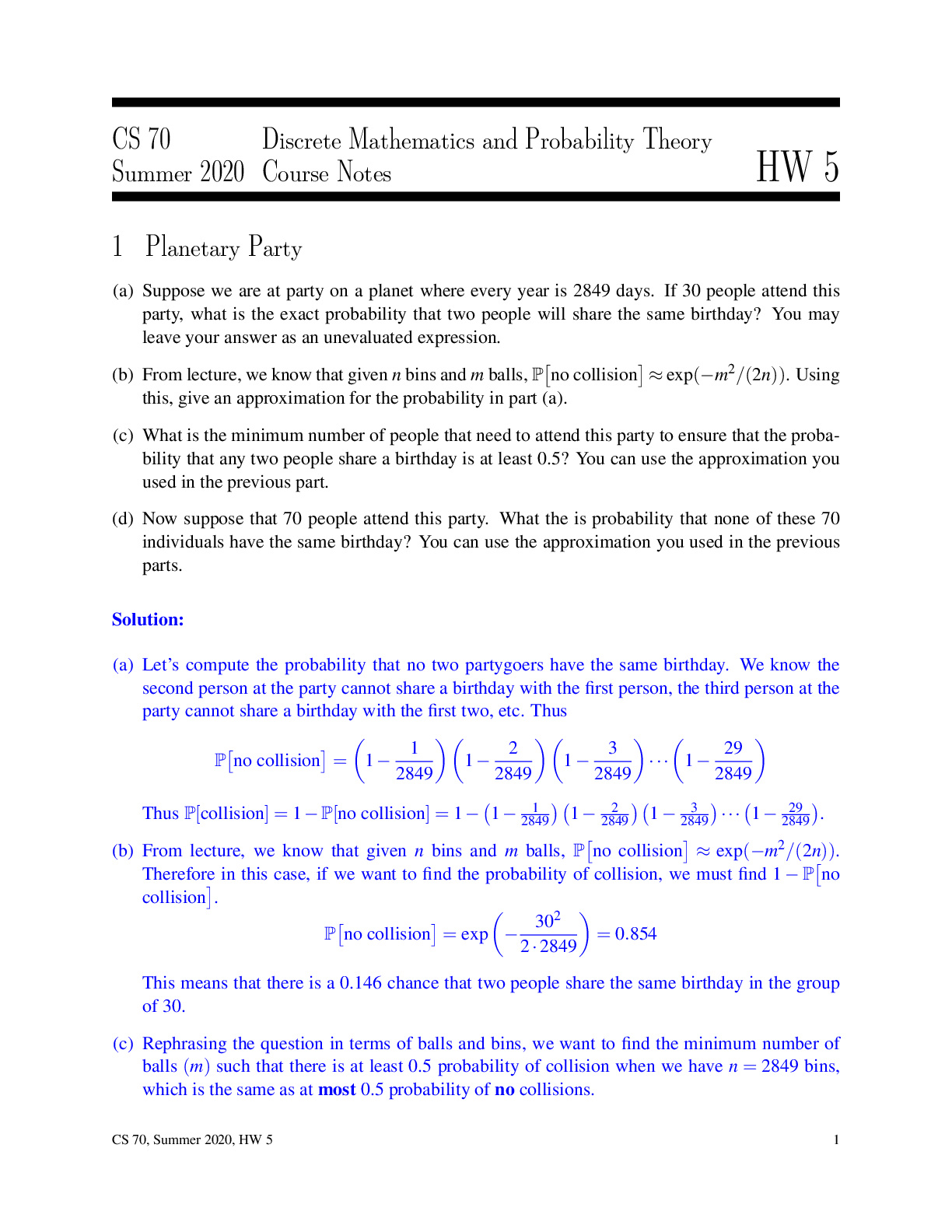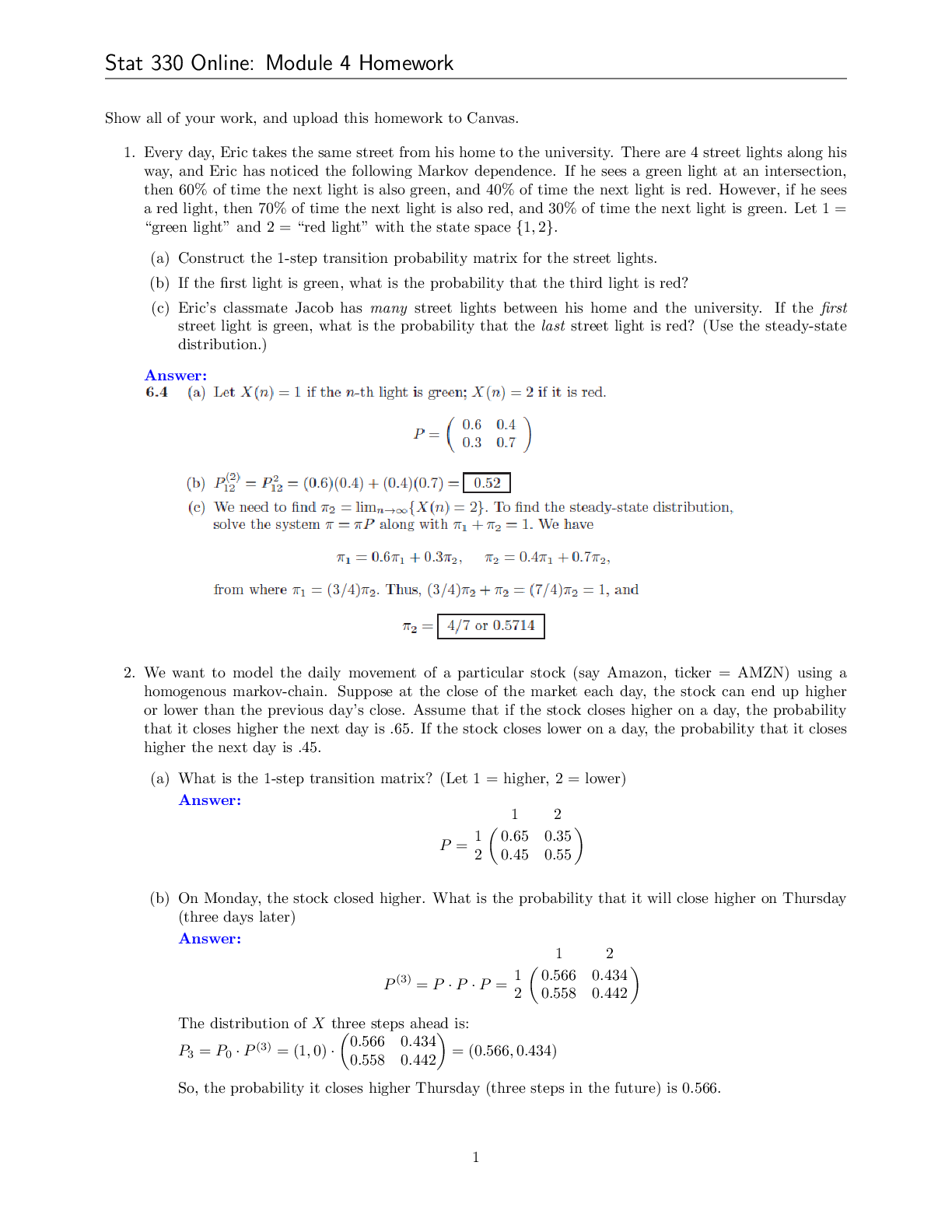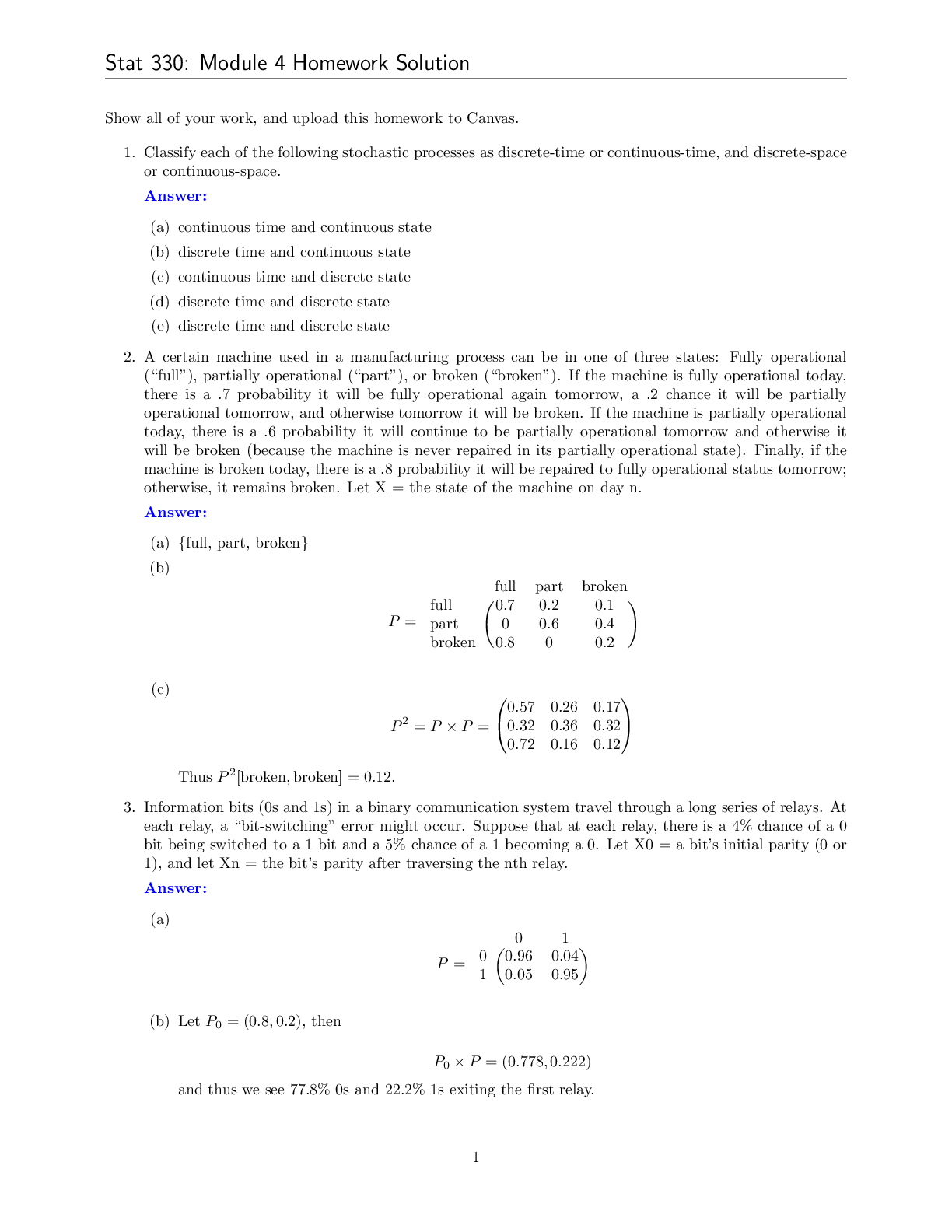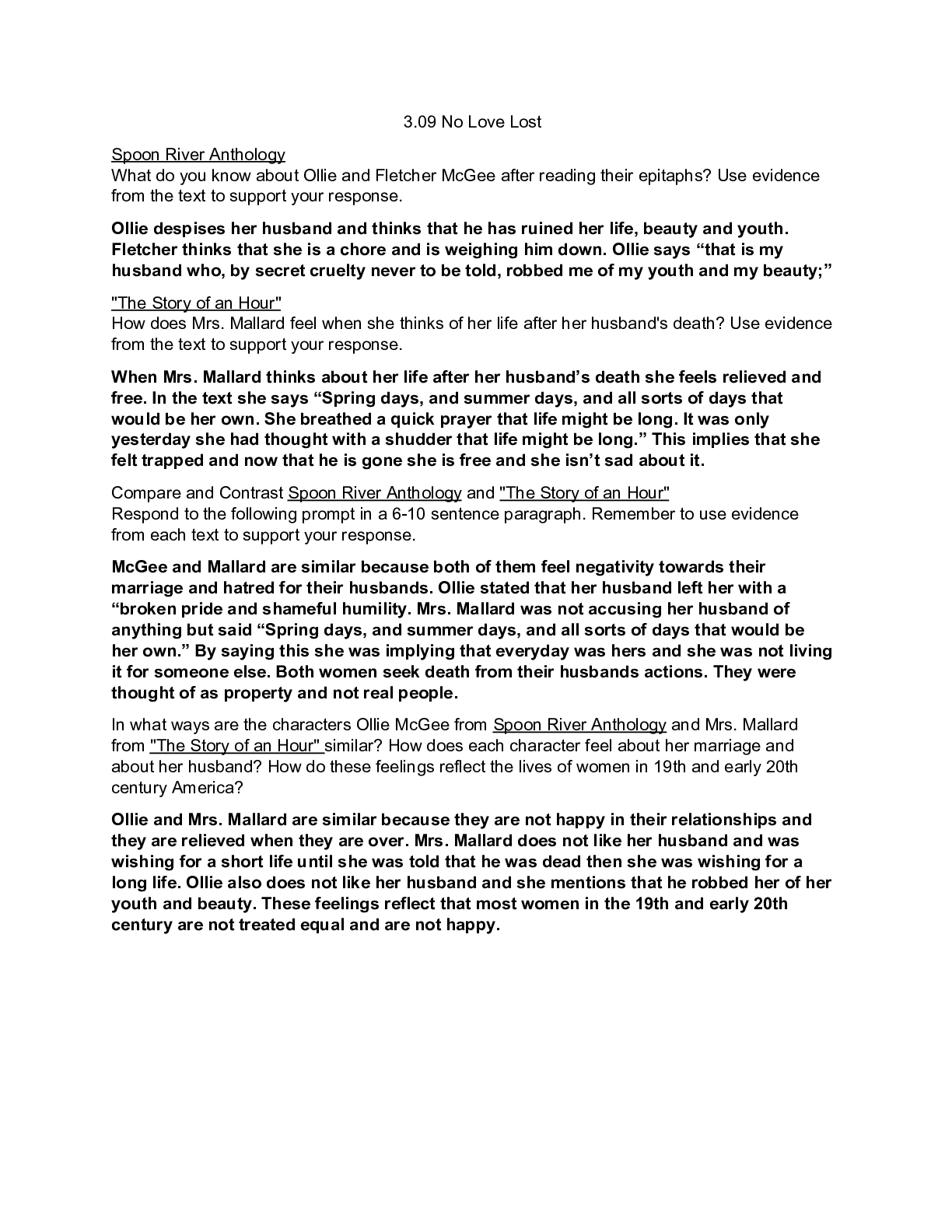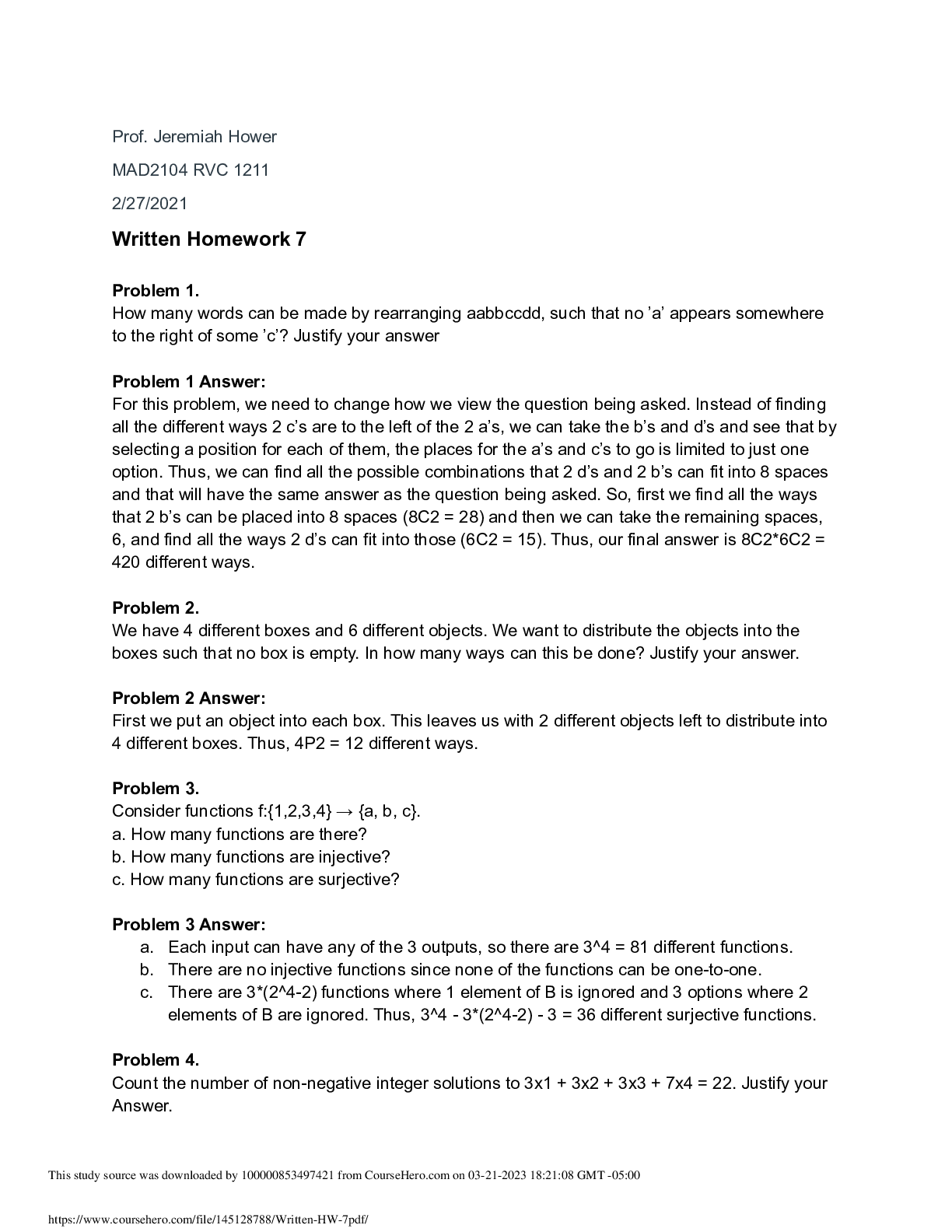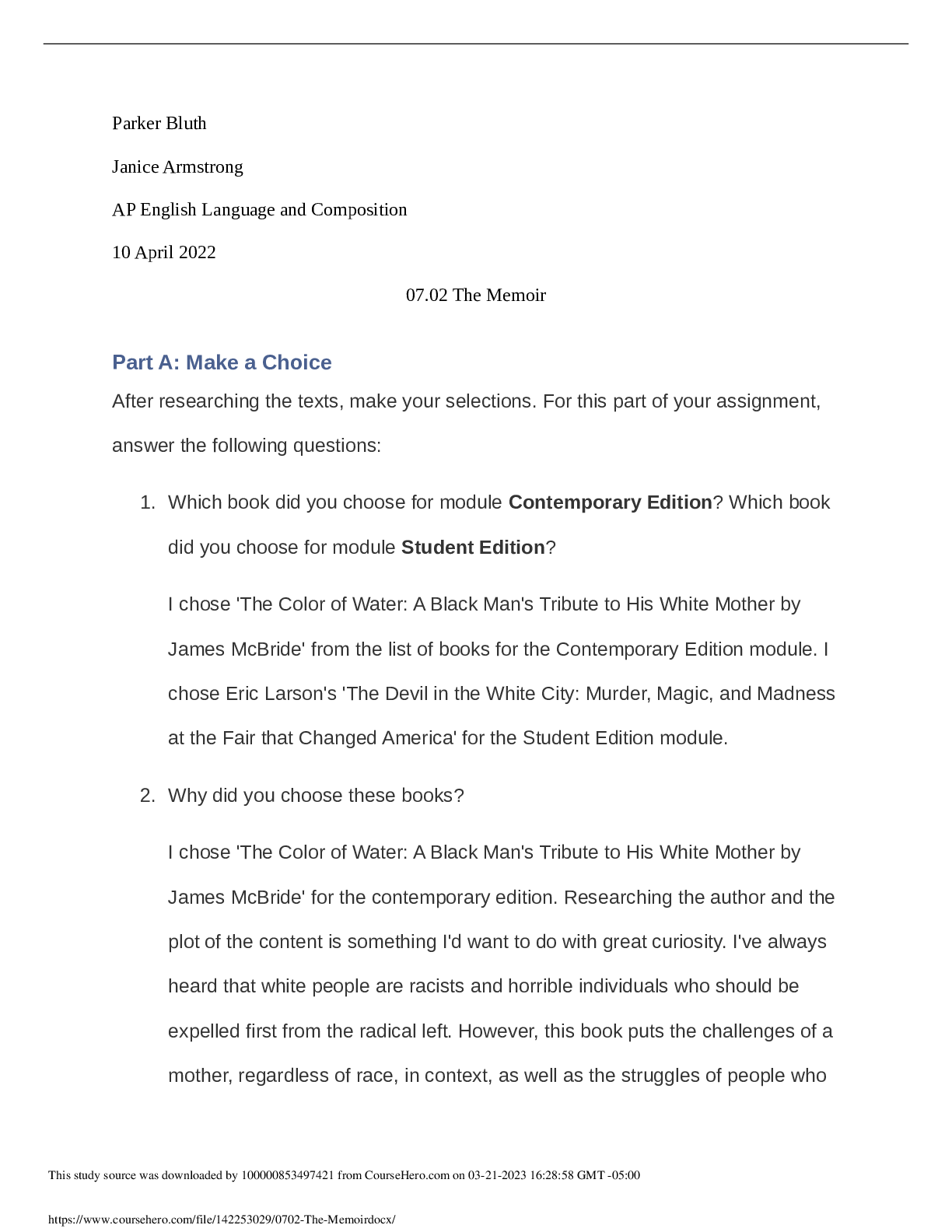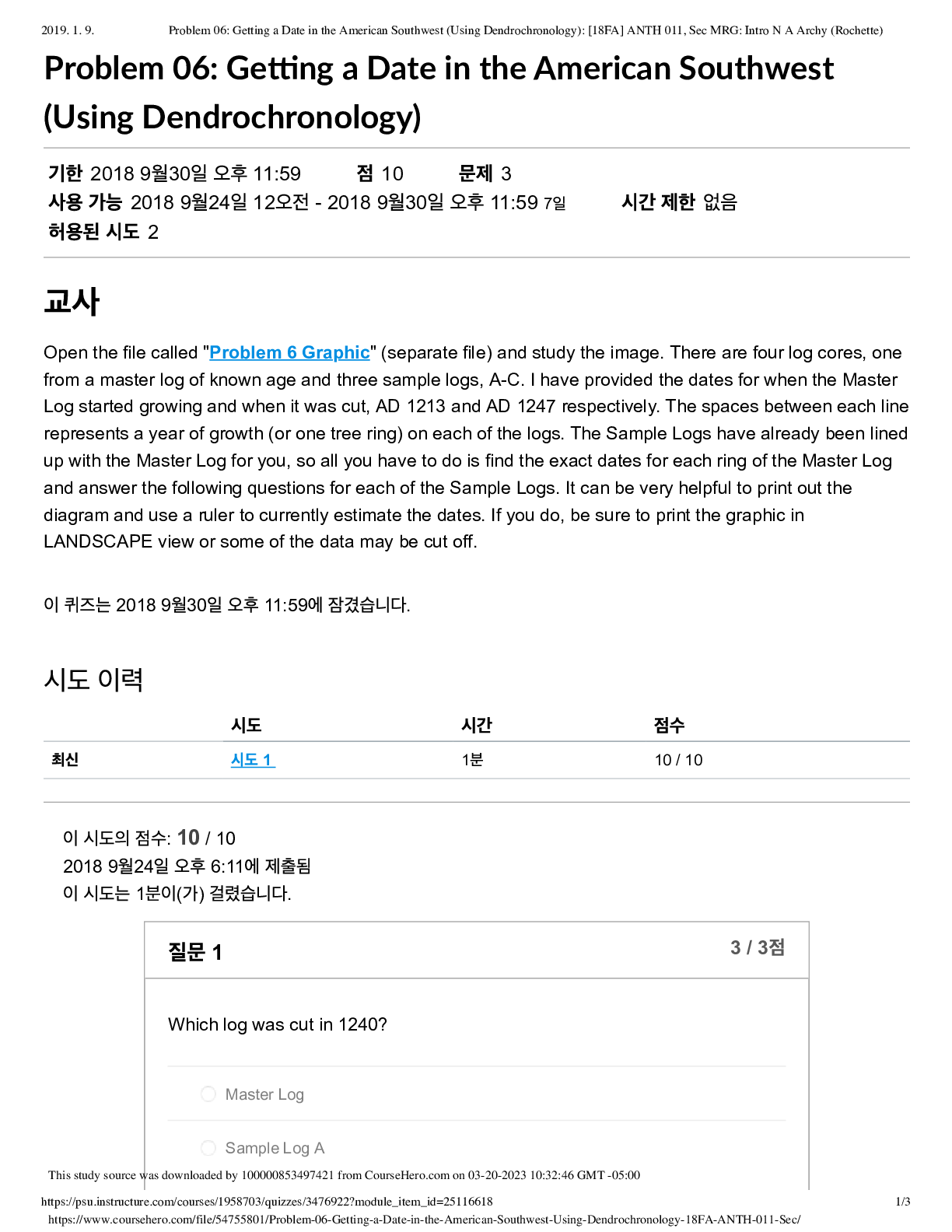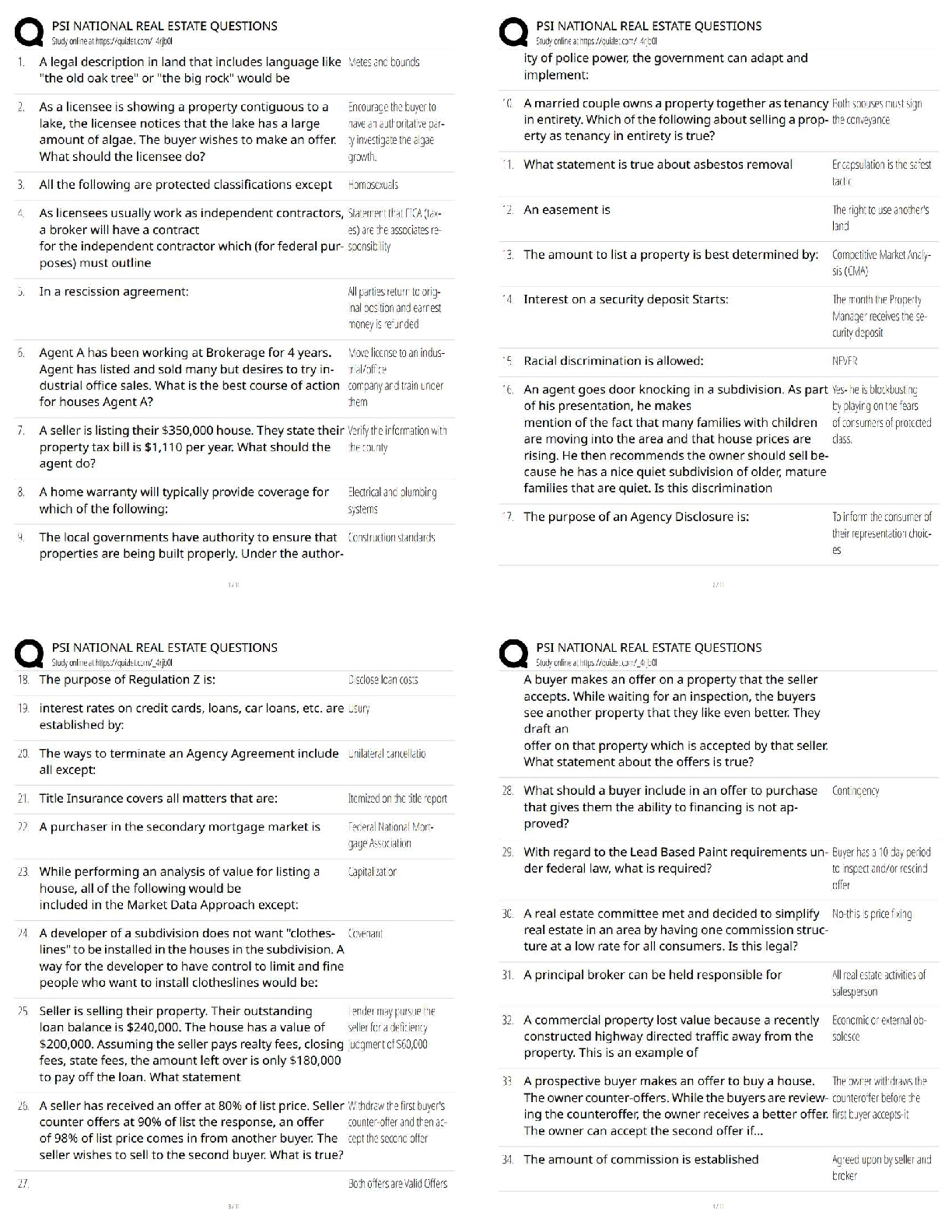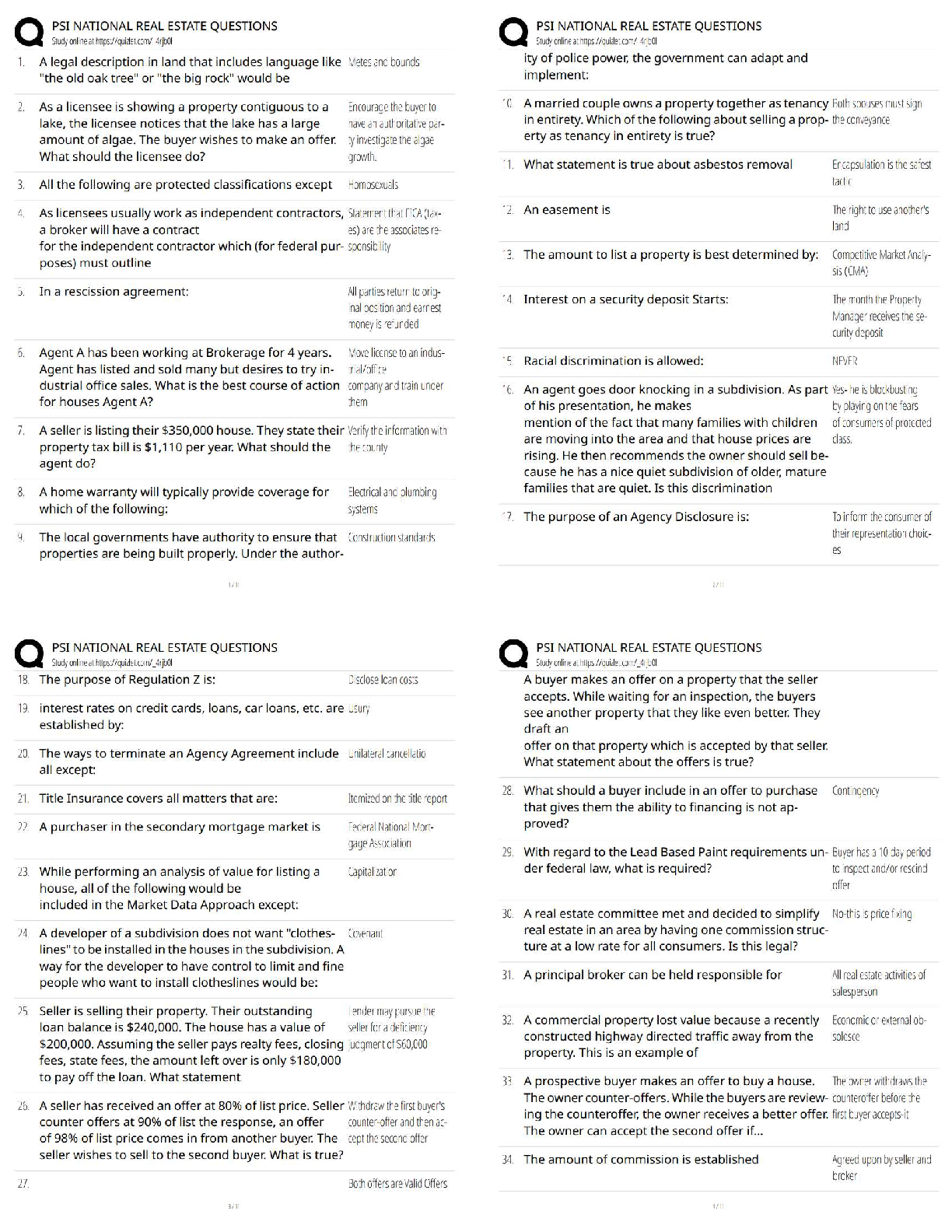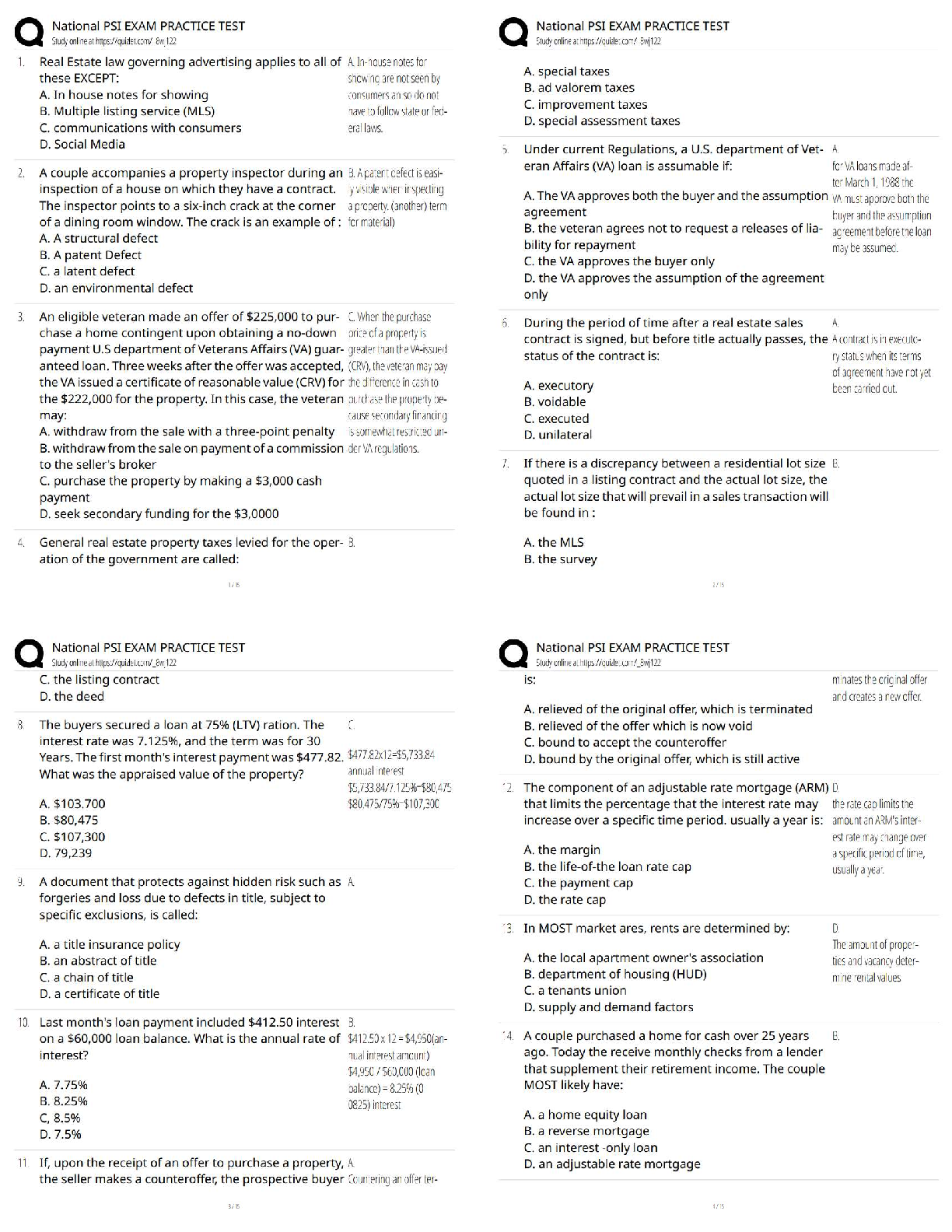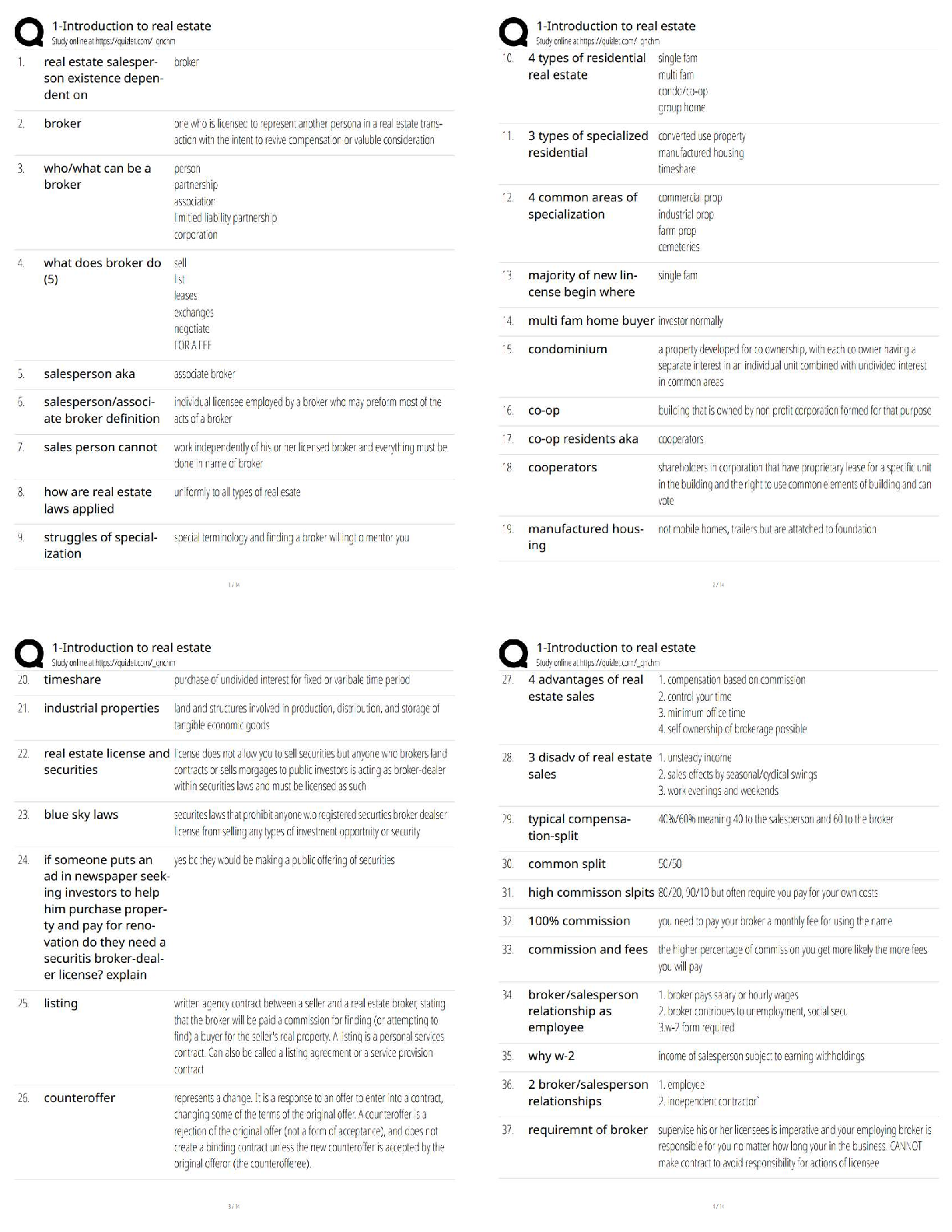AFRICAN CUSTOMARY LAW > QUESTIONS & ANSWERS > 2016_May_June_IND2601_MEMORANDUM | Download for quality grades | (All)
2016_May_June_IND2601_MEMORANDUM | Download for quality grades |
Document Content and Description Below
Question 1 1. 3 2. 2 3. 4 4. 1 5. 3 6. 1 7. 4 8. 3 9. 4 10.1 Question 2 (i) The unwritten nature of African customary law(5) Originally, African customary law was not recorded in written ... legal sources such as statutes, law reports or textbooks. Court procedures were conducted orally, and the law was also transmitted orally from one generation to the next. This process of legal transmission was furthered by the public participation of adult men in particular in the administration of justice. The result, therefore, was that the community had a broad general knowledge of the law. To a large extent, important legal principles were expressed by means of legal maxims. (ii) The customary nature of African customary law (5) 7Most indigenous legal systems in Africa are the result of age-old traditions and customs that, in the course of time, came to be classified as “law”. There are also examples of laws promulgated by chiefs. These laws were mainly limited to direct orders and instructions from the ruler. 8Formal administration of justice was also known, but the indigenous court’s function was limited to the application, and not the creation, of law. Furthermore, a system according to which indigenous courts were bound to their previous decisions or to the decisions of a higher court was unknown in indigenous African law. In other words, the indigenous courts had no system of precedent. (“Precedent”means that a court’s decision sets a precedent or example that must be followed in similar cases by courts of the same order or by courts of a lower order.) (iii) Customary law as an expression of community values (5) 9Public participation in the process of adjudication resulted in the law also giving expression to the prevalent values or the general moral behavioural code of the community. As values changed in the course of time, so did the law. Conflict between legal and moral values was therefore unknown. In a dispute between parties, usually family groups, the emphasis was not on which party was right and which party was wrong. The dispute affected the wider community, which meant that any decision had to take into account future relations between the parties within the community. These relations were extremely important if the wider community was to enjoy harmony. Thus, the administration of justice did not concern legal justice as such, but the reconciliation of people (“human” justice). As a result, the interests of the community were considered so important that, in the eyes of the law, the individual had no special part to play. The individual did, however, have a role to play within the group, that is within the family on the one hand and within the community on the other. (iv) The role of magico-conceptions of African customary law (5) [Show More]
Last updated: 2 years ago
Preview 1 out of 9 pages

Buy this document to get the full access instantly
Instant Download Access after purchase
Buy NowInstant download
We Accept:

Reviews( 0 )
$7.00
Can't find what you want? Try our AI powered Search
Document information
Connected school, study & course
About the document
Uploaded On
Mar 14, 2023
Number of pages
9
Written in
All
Additional information
This document has been written for:
Uploaded
Mar 14, 2023
Downloads
0
Views
145

